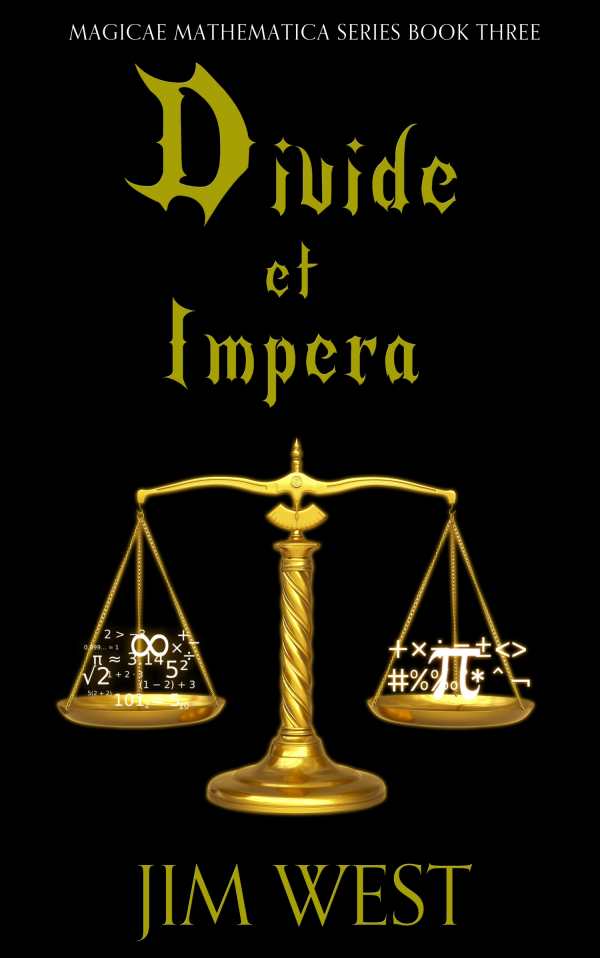Divide et Impera
By making scholarship the stuff of true heroes, Divide et Impera becomes unique fare for young readers—a work that inspires advanced curiosity, even as it entertains.
Jim West’s Divide et Impera displaces a contemporary girl in an alternate world where math and language are magic, and where characters from myths still live. This is an exciting fantasy wherein the showdown between good and evil takes on a scholarly edge.
Nosaj, the son of a king who was orphaned young, is about to come into his own. In his city, the struggle between would-be tyrants and democratically minded wise men reigns, with his uncle Etan–who considers himself the rightful leader—taking up the less savory position. Plato, Socrates, and Aristotle forge righteous plans while in exile, with mourning Daedalus by their side, still crafting wings; Archimedes, Diades, and Pythagoras have all taken their own positions in the fight.
Alex, a modern middle-schooler, finds herself thrust into this conflict after a fall from Earth; with no ideas on how to get home, she works to forge a place among the fighting factions. Called the missing variable, she—and her calculator—have an important role to play in the city’s future. As villains and heroes battle to control her, she and Nosaj must wage separate struggles to ensure the safety of the innocent.
If read as a stand-alone volume, Divide et Impera forces its audience to play a lot of catch-up, and without much help. Flashbacks are unpredictably executed: the book opens on Etan’s showdown with Nosaj’s father, then quickly skips ahead to its central time frame; these first scenes are almost unnecessary in light of later reveals.
Meanwhile, Alex is not initially accounted for, though, as the hidden variable, she’s the element that ties the series together; this leaves newcomers scrambling to understand her importance. This scattering of important details may prove to be a frustration, particularly since the conflict at the center is–once understood–so captivating.
This fantasy is otherwise well-crafted, with sympathetic characters and a relatable conflict propelling it forward. Characters in the city have foreign-sounding names, many of which are simply contemporary names spelled backward; this is a nod to the general inversion of Earth’s reality within Nosaj’s land, and works well, keeping questions of how much of the world is in Alex’s mind at the surface.
Adolescents are given incredible power in the novel, from Nosaj, who struggles against the limitations of his youth to lead with dignity, and learns to be a more compassionate person along the way; to Alex, who, though she is often overcome with worry for her family and friends, still finds a way to learn and come into her own. As developing leaders, they should inspire young readers to, in turn, take stock of their own abilities to effect change, believing that “greatness comes from within.”
That ancient mathematicians and philosophers are the novel’s wizards and wise men is a fascinating and clever device, inviting invigorated young audiences into further inquiry. The direct interjection of the principle of “checks and balances” is the one moment where the novel’s didactic tendencies are a bit too overt.
By making scholarship the stuff of true heroes, Divide et Impera becomes unique fare for young readers—a work that inspires advanced curiosity, even as it entertains.
Reviewed by
Michelle Anne Schingler
Disclosure: This article is not an endorsement, but a review. The publisher of this book provided free copies of the book and paid a small fee to have their book reviewed by a professional reviewer. Foreword Reviews and Clarion Reviews make no guarantee that the publisher will receive a positive review. Foreword Magazine, Inc. is disclosing this in accordance with the Federal Trade Commission’s 16 CFR, Part 255.

